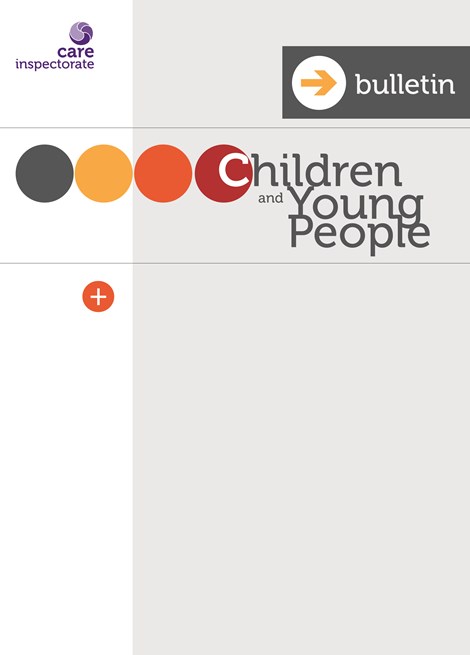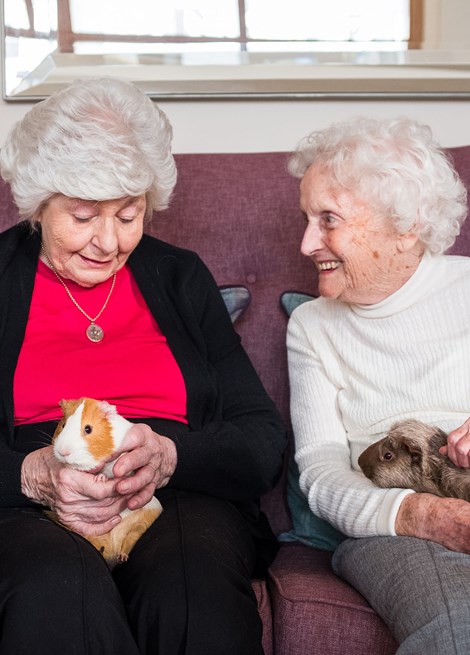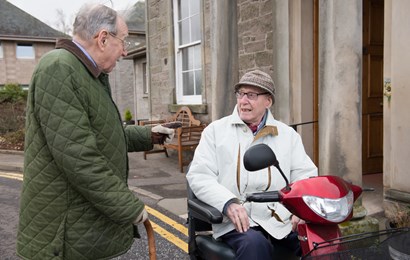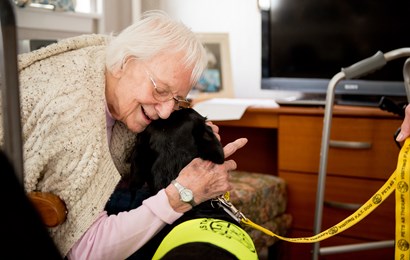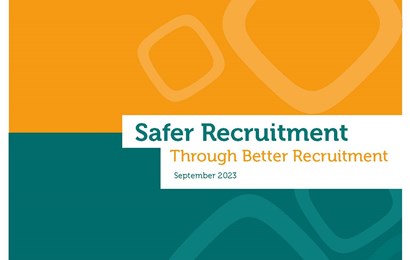
Carers
Carers (Scotland) Act 2016
The Carers (Scotland) Act 2016 came into force on 1 April 2018. It puts in place a system of carers’ rights designed to listen to carers; improve consistency of support; and prevent problems – helping sustain caring relationships and protect carers’ health and wellbeing.
Provisions in the Act include:
- the right for all adult and young carers to a plan which focuses on what matters to them. For adult carers, this is called an adult carer support plan and for young carers, a young carer statement. Authorities have a duty to offer this plan or statement to every identified carer and carers also have a right to request one if they have not been offered.
- a duty on local authorities to provide support to carers if any of their identified needs meet the local eligibility criteria;
- a duty on local authorities to involve carers in the planning of local carer services they provide;
- a duty on local authorities and health boards to jointly publish a local carer strategy;
- a duty on local authorities to establish and maintain advice and information services for carers; and
- a right for carers to be involved in the hospital discharge process of the person they care for.
The Carers’ charter was published to help make carers aware of their rights under the Act.
The Scottish Government established the Carers (Scotland) Act Implementation Steering Group (ISG) with representation from the main delivery partners including local authorities, health boards, integration joint boards, third and independent sectors, carer organisations, carers and other stakeholders including the Care Inspectorate. The group agreed a national Carers Act Implementation Plan for 2018-20 which identifies the strategic priorities that must be addressed in order to ensure the Act embeds on the ground.
The Scottish Government co-produced statutory guidance on the Act with relevant stakeholders, including carers themselves, which was updated in 2021. The guidance is for local authorities, health boards and integration authorities and may also be of interest to other organisations working alongside statutory bodies to deliver carer support.
The Coalition of Carers in Scotland launched a set of co-designed leaflets explaining new rights for unpaid carers under the Carers (Scotland) Act 2016. The Coalition worked with a variety of carers, carer organisations and health and social care staff to co-design the seven resources.
Young Scot and Carers Trust Scotland have produced some helpful resources for young carers to understand their rights under the Act.
In 2019 the Scottish Government published its draft Carers Strategic Policy Statement. The document sets out the Government's overall ambitions for unpaid carers and for carer support. It maps the main policies across the Scottish Government which will be particularly relevant to carers and sets out the overall outcomes these policies contribute towards, as well as the principles underpinning our work. The document aims to inform strategic planning and policy development for local and national organisations working with carers. It will also inform frontline workforce training, including for teachers, social workers, health professionals and carer support workers.
Key documents:
Children and Young People (Scotland) Act 2014
The Children and Young People (Scotland) Act 2014 includes provisions to establish a 'kinship care order' to enhance support provided to kinship carers who obtain an order under the Children (Scotland) Act 1995. Eligible kinship carers will get help and advice if they apply for, or are considering applying for, a kinship care order, and will get enhanced support, when they get, or are subject to a kinship care order.
Carer Positive Employers Accreditation Scheme
Carer Positive is an accreditation scheme that encourages and recognises employers who put in place flexible and supportive working practices for people who juggle work with unpaid care. It promotes the benefits for businesses, individual carers, society and the wider economy of supporting unpaid carers to remain in work alongside caring. The scheme is funded by the Scottish Government and delivered by Carers Scotland.
If your organisation would like to sign up to be Carer Positive, you can visit the website for an application form or contact the coordinator, Sue McLintock at: sue.mclintock@carerscotland.org or on 0141 445 3070.
Social Security (Scotland) Act 2018
The Social Security (Scotland) Act was introduced to facilitate the devolution of social security powers. An overall commitment to improving the experience of carers, so support and advice is more accessible under the new Scottish social security system, was made by Ministers. The work of the Carer Benefit Advisory Group informed the Government's approach in this area.
The Scottish Government’s first change when the Act was passed was to introduce Carer's Allowance Supplement (CAS) in September 2018. This brought the amount paid in line with Job Seekers Allowance through two additional payments a year. CAS has helped over 77,000 Scottish carers, increasing Carer's Allowance by 13%, with an investment of over £33 million in 2018/19, and 37 million in 2019/20. The Scottish Government will also start delivery of additional financial support to carers of more than one disabled child in spring 2021.
The Scottish Government and Young Scot launched an awareness raising campaign to ensure carers aged between 16 and 24 are claiming Carer’s Allowance. The Scottish Government also published a Question and Answer factsheet to help carer organisations understand the implementation and timescales of the Carer’s Allowance.
In September 2017 the First Minister announced plans for a new Young Carer Grant to be awarded to carers aged between 16 and 18 who do at least 16 hours of caring per week, but do not qualify for Carer’s Allowance. The Young Carer Grant was introduced in autumn 2019 and will help around 1,700 young carers each year. Recipients of the Young Care Grant will also be provided with free bus travel from 2020/21, subject to successful piloting following carers’ concerns about meeting travel costs. The Grant, worth £300 a year, is part of a new package of support for young carers, which includes more entitlements and awards for 11-19 year old young carers through the Young Scot National Entitlement Card.
The Scottish Government has introduced the Carer's Allowance Supplement (Scotland) Bill which intends to replicate a ‘double payment’ of the Carer’s Allowance Supplement in December 2021, as was initially facilitated by the Coronavirus (Scotland) (No.2) Act 2020. Separately from this Bill, the Scottish Government plans to introduce a new benefit called Scottish Carer's Assistance. This future benefit would support carers and replace Carer's Allowance and this supplement.
Useful Links
Further reading
Related Policy
Browse other policy developments
Self-directed support library
A selection of resources that explain what SDS is, people’s stories, assessment and support planning tools as well as resources to influence commissioning and procurement practice to make SDS truly mainstream across Scotland
Animal magic
A resource celebrating the amazing difference being around and caring for animals makes for many children and adults using a range of care services.
National recruitment guidance
Guidance in relation to the recruitment of staff working in social care, early education and childcare and social work settings
Latest adult and health bulletin
A weekly bulletin produced by our policy team providing an update on the key developments in adult social care and health.
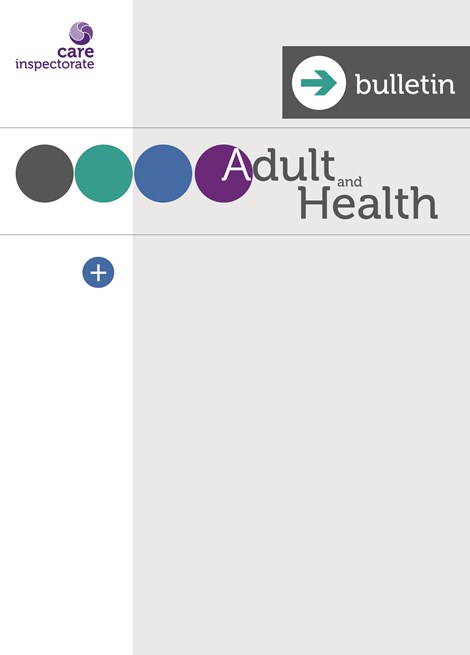
Adult & Health Bulletin: 20 -26 June 2025
Adult & Health Bulletin: 20 -26 June 2025Latest children and young people bulletin
A weekly bulletin produced by our policy team providing an update on the key developments concerning children and young people.
